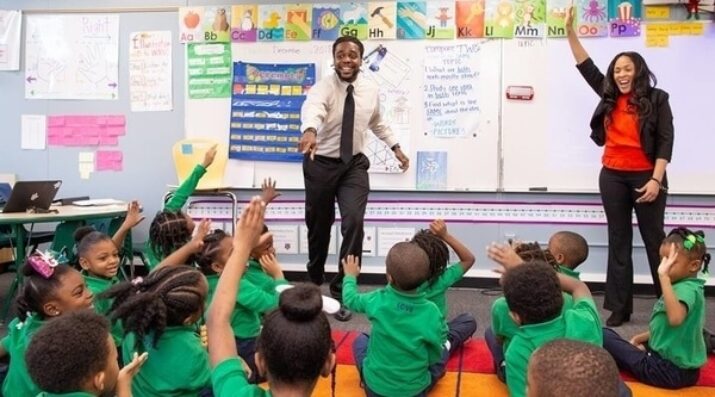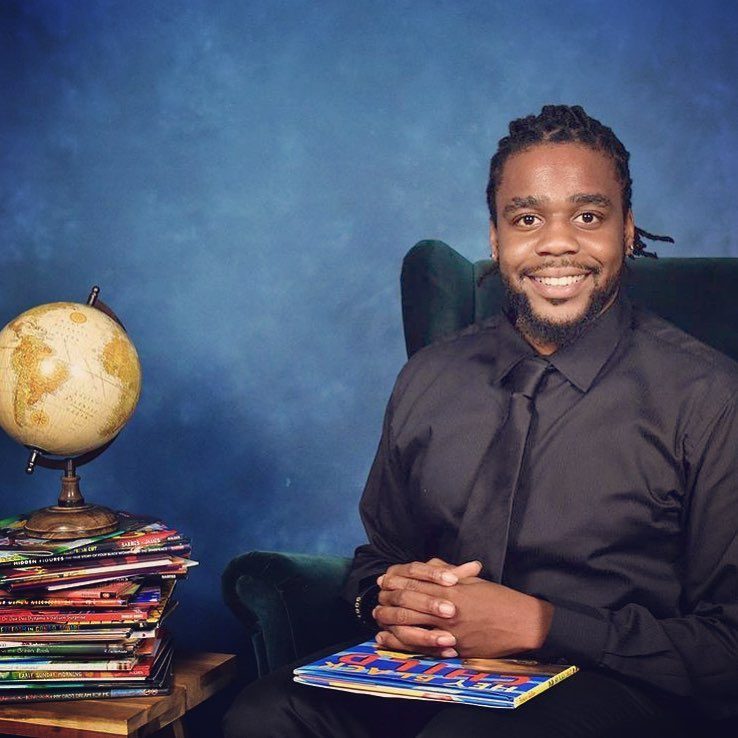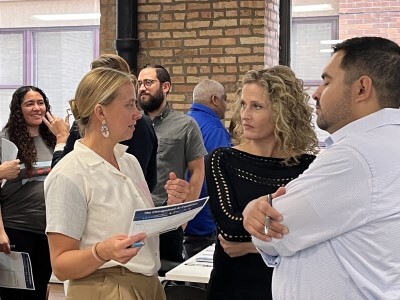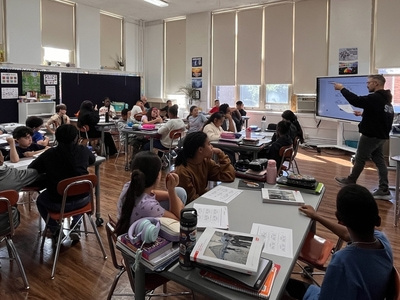Professional Learning
It's a Tough Time for Teachers. Here's Why I'm Joining the Profession.
Topics

Educators are the lead learners in schools. If they are to enable powerful, authentic, deep learning among their students, they need to live that kind of learning and professional culture themselves. When everyone is part of that experiential through-line, that’s when next generation learning thrives.
As an African American man who is determined to shape young lives and lift up my community, I can’t think of a more powerful job.
You've probably seen the worrying headlines about the state of the teaching profession. States like Arizona, Colorado, Oklahoma, and California, which are struggling with acute teacher shortages, have also seen massive teacher strikes in the past year. Nationally, enrollment in teacher-preparation programs has fallen 35 percent over the past five years. The rate of teachers who quit the profession is the highest it's been since the U.S. Department of Labor began tracking those figures in 2001.
If you're wondering why, in this environment, someone would embark on a training program to enter the teacher workforce, let me share my reasons. As an African-American man who is determined to shape young lives and lift up my community, I can't think of a more powerful job.
Being a role model is a major responsibility, but it energizes me.
I'd planned to work with kids ever since my days as a summer camp counselor. After graduating from college, I followed my passion. I worked with at-risk youths who were in danger of being removed from their homes because of their behavior and as a behavior specialist at an alternative school for students with significant disciplinary problems.
Most of this work was purposeful but incredibly challenging. As someone who likes to solve problems, I often felt like I was drowning in problems—from parenting issues to bureaucratic dysfunction—that were simply too deep to fix. Sometimes the hopelessness weighed on me so much, I wondered if I should stop working with kids altogether.
I feel incredibly fortunate that, instead of giving up, I sought a new environment. I joined KIPP Vision Primary, an elementary school in southeast Atlanta where 98 percent of students are African-American. As a paraprofessional, I supported one 1st grader who was struggling with emotional issues and needed extra help. Within three months, he went from being unable to focus on classwork to being thoroughly engaged in learning. When the school named me "teacher of the month," I was proud and a bit embarrassed. I didn't yet consider myself a teacher. I didn't even have my own classroom.
But the leaders at KIPP saw my potential and encouraged me to pursue teaching. They suggested I consider Relay Graduate School, whose residency program allows aspiring teachers to train in the classroom, with the support of mentors.
Now in my first year as a Relay resident, while working toward my certificate, I'm teaching kindergarten at the same KIPP school. I've already learned a tremendous amount about how an intentionally designed school culture can ignite students' passion for learning.
Our school places a premium on joy. It might sound trite, but there are countless opportunities to inject joy into the educational experience—and it almost always pays off. For example, after providing 30 minutes of instruction, we often grant our kids a 10-minute "wiggle break." When students get to dance and move around, they rejuvenate. They learn to go from serious to silly and then back to serious. Simply put, they get to be kids—and scholars.
We also try to introduce lessons with catchy hooks that grab our kids' attention. Sometimes we use songs to teach certain topics. The message is clear: Learning is fun. If that sounds like an obvious tactic, you'd be surprised how many schools make education feel like punishment.
Our school also provides a strong support network for less experienced teachers like me. Veteran educators and principals regularly observe my teaching and make recommendations to help me improve my practice; that feedback loop is embedded in the culture of our school and my graduate program. When I remind myself that very few teachers have the same support, it breaks my heart because it doesn't have to be this way.
I've also found that teaching is about more than increasing a student's content knowledge. Each day, dozens of tiny kids look up to me—literally and figuratively. I'll never forget how the little boys in my class began wearing wristwatches after they noticed mine. I know that as they grow up, they'll get cues from popular culture about who they should become: ballplayers or rappers. I want them to think differently. I want them to know black men who are part of their communities, who are nurturers and educators.
Being a role model is a major responsibility, but it energizes me. Whereas my past experiences working with children had been meaningful but exhausting, now seeing the impact I have on my kids' lives is a source of constant inspiration and rejuvenation.
Teachers are powerful people. The more our public education system helps teachers harness that power, the more the next generation will benefit. And who knows? Many of them might grow up to become teachers.




